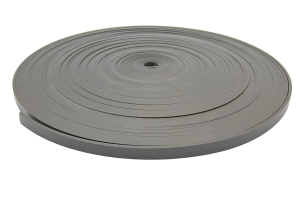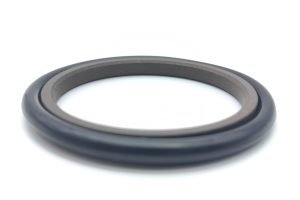Great buildings are built brick by brick. Likewise, our great modern economies are built on the backs of key components and materials that power our industries. Case in point; vulcanized rubber. In contrast to conventional rubber, it is better suited to industrial applications owing to considerably boosted strength and elasticity.
You will learn about vulcanization, vulcanized rubber, and its uses and advantages from this article.

What is Vulcanized Rubber?
Vulcanized rubber is a material made by adding other additives to natural or synthetic rubber through a vulcanization process. This vulcanization process can improve rubber’s elasticity, strength, and durability.
Conventional rubber is more vulnerable to damage, elasticity, and deformation. With changes in weather, it expands and contracts, leading to long-term deterioration. Besides, it can only bear a limited amount of stress before snapping.
This makes conventional rubber inadequate for many industrial uses. Either it would not be able to cope with the demands of manufacturing or would have to be frequently replaced.
On the other hand, vulcanized rubber is more resilient to wear and abrasion than regular rubber. It is actually far stronger than regular rubber by several times. . Consequently, it is more long-lasting and durable. Yet, it does not compromise its elastic properties.
Heat and sulfur are used to harden it through a curing process. The reaction of sulfur and heat during the process develops new cross-links that make rubber much stronger and highly elastic.
Aside from its increased strength, vulcanized rubber also has additional features:
●Liquid Repellant: Vulcanized rubber is capable of repelling water, giving it a high degree of moisture resistance. In addition, it also repels other fluids, such as oil and lubricants, which ordinarily dissolve conventional rubber.
●Solvent Resistant: It is also strong against solvents and anti-oxidizing liquids. This is thanks to the manufacturing process of vulcanized rubber. Consequently, it is an excellent material for preventing solvent-induced corrosion.
●Increased Elasticity: Vulcanized rubber is more elastic and stronger than regular rubber, but it is also more flexible. Its increased tensile strength means it can withstand pressures for a longer duration before shattering.
●Heat Resistance: Unlike conventional rubber, which tends to disintegrate and soften when exposed to high heat, vulcanized rubber is comparatively more resilient. This makes it resilient to degradation caused by fluctuating temperatures induced by the weather as well as industrial machinery.
As a result of these features, vulcanized rubber has a range of industrial applications. Owing to its strength and durability with no compromising to its liquid-proof qualities and elasticity means that it is a crucial component of the machines powering factories.

What is Vulcanization?
To better understand what makes vulcanized rubber such an advanced material, one needs to know the unique process that creates it. Vulcanization is a chemical process wherein natural or synthetic rubber is chemically treated to increase its tensile strength.
More specifically, rubber is essentially combined with other agents at a chemical level to make it a stronger material. The most common agent for this purpose is sulfur. By curing rubber with sulfur, new crosslinks are created between elastomers, which are polymers that make up rubber and give it its stretchiness. These new crosslinks boost the rubber’s strength without sacrificing its elasticity.
Today, besides sulfur, several additional agents are added to the process to enhance vulcanized rubber’s properties. Accelerants are included to speed up the process. Carbon black and zinc oxide are sometimes added to reinforce the rubber’s durability against corrosive solvents. Anti-oxidants are also added to protect vulcanized rubber against oxidation and ozone, improving its longevity.
Benefits of Vulcanized Rubber
Vulcanized rubber offers a range of benefits if it is vulcanized in the correct way. Here are a few benefits of vulcanized rubber that you can harness:
●Enhanced elasticity
●Improved tear strength
●Resistance to abrasion and organic solvents
●Improvement in resilience
●Lower resistance to oxidation
●Makes an outstanding electrical insulator
●Higher tensile strength
●Less susceptibility to deformation or damage
Vulcanized rubber is widely used in industrial seals, such as hydraulic rubber seals and rubber wiper seals. Rubber seals manufactured by TYS are made of high-quality raw materials and are made by advanced equipment vulcanization or molding processes. A variety of materials and production processes meet different specific needs. Contact us now to get a free quote.
Conclusion
Clearly, vulcanized rubber is the backbone of our modern businesses and industry. This unassuming but strong material is responsible for helping create the products we use and consume, as well as delivering them to us.
Vulcanized rubber is the best material for all kinds of industrial applications, from industrial seals to vibration dampers. In fact, we may not realize it, but without it, we cannot have the modern world around us.







